news
news
news
press release

For over 100 years, the name DEKRA has stood for quality and safety – including in the field of modern human resources solutions. Since 1998, the DEKRA Arbeit Group has been successfully connecting companies with the right talent – reliably, across multiple industries and with numerous awards to its name.

For over 100 years, the name DEKRA has stood for quality and safety – including in the field of modern human resources solutions. Since 1998, the DEKRA Arbeit Group has been successfully connecting companies with the right talent – reliably, across multiple industries and with numerous awards to its name.
Topics
Every quarter, the World Employment Confederation compiles the latest data about staffing activity, the economy and labour markets and brings them all in one place: our quarterly Labour Market Intelligence Insights report. Check out the latest edition: it’s a goldmine of data! You can subscribe to receive the update directly in your mailbox every quarter. Just fill out the form!
Every quarter, the World Employment Confederation compiles the latest data about staffing activity, the economy and labour markets and brings them all in one place: our quarterly Labour Market Intelligence Insights report. Check out the latest edition: it’s a goldmine of data! You can subscribe to receive the update directly in your mailbox every quarter. Just fill out the form!
publication

The HR services sector has a key role to play in shaping future employment policies. As the voice of the industry, the World Employment Confederation is a trusted partner for policymakers, workers and businesses.
Bettina Schaller - President, World Employment Confederation

3 out of 4 people working through a staffing agency in Chile were previously unemployed or working in the informal economy. This underline the industry’s role in helping people into work and into the formal economy.
Alfred Budschitz - Director General, Emplea Chile

Our membership to the World Employment Confederation enables us to stay abreast of international trends and to access advice and support in specialized areas such as advocacy, ethics and global best practice standards. This translates to higher levels of professionalism in the industry at local level which benefits our members.
Jacqueline Ford - CEO, APSO (South Africa)

opinion piece
